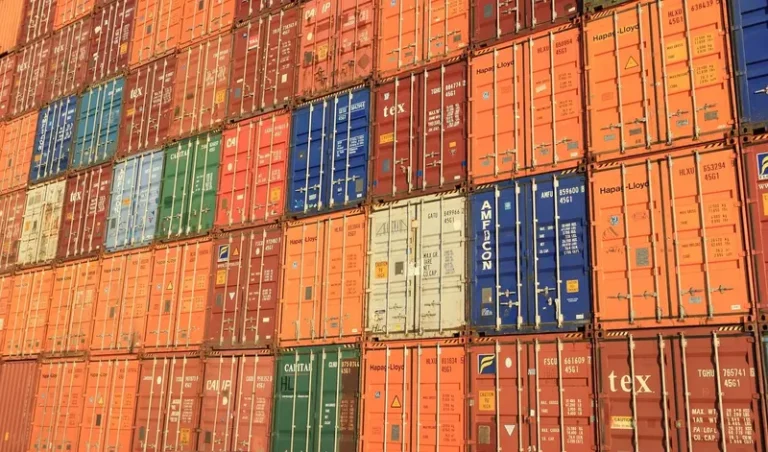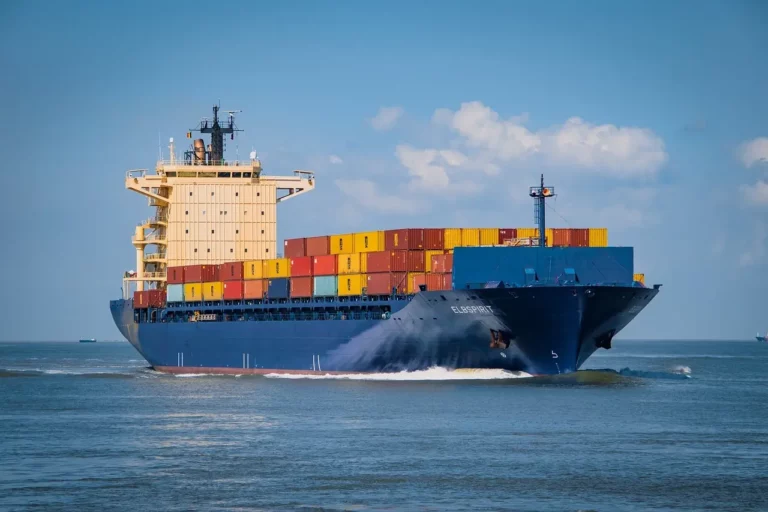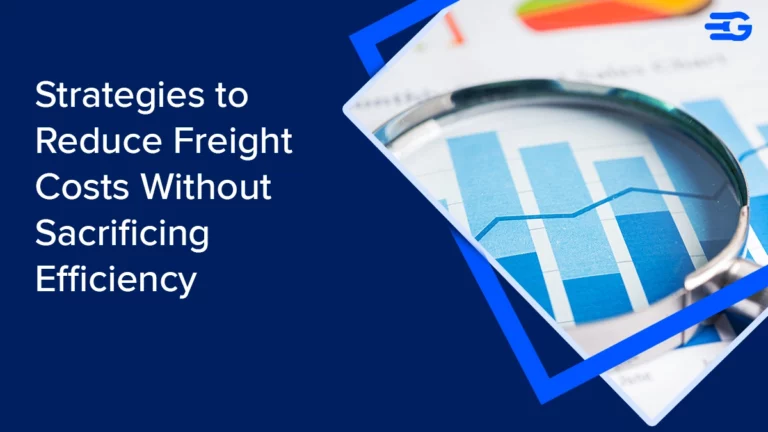3PL Services: Revolutionizing Logistics Management
Introduction:
In the contemporary realm of logistics management, the pivotal role played by Third-Party Logistics (3PL) providers cannot be overstated. As we navigate the complexities of global commerce. 3PL services are reshaping the landscape of how goods traverse the supply chain from origin to destination.
In the fast-paced world of logistics management, the looming fear of the bullwhip effect casts a shadow over supply chain operations. The bullwhip effect was exacerbated by the COVID-19 pandemic as consumer demand for essential goods spiked unpredictably, and supply chains experienced severe disruptions. This phenomenon, characterized by amplified demand variability as it moves upstream in the supply chain, poses a significant challenge for businesses striving for efficiency and agility.
No longer confined to traditional roles of transportation and warehousing, 3PLs are well-equipped to mitigate the bullwhip effect by enhancing supply chain visibility, optimizing inventory management, and fostering collaboration among supply chain partners.
Against this backdrop, let’s delve in detail into the realm of 3PL and their concurrent potential.
What is a 3PL Provider?
A 3PL, or third-party logistics provider, is a company that specializes in handling various aspects of logistics and supply chain management on behalf of other businesses. These providers offer a comprehensive range of services designed to streamline operations and enhance efficiency for their clients.
Definitively, 3PLs differ from 4 PLs, as the former handles tactical logistics functions, while the latter takes on a broader role, providing strategic direction, end-to-end visibility, and supply chain optimization services.
One of the key services offered by 3PL providers is warehousing. They maintain storage facilities where clients can store their inventory safely and securely. These warehouses are equipped with advanced inventory tracking and management systems, ensuring that clients have real-time visibility into their stock levels.
Transportation is another critical service provided by 3PLs. They manage the transportation of goods from point of origin to destination, whether it’s through ground shipping, air freight, or ocean freight.
Fulfillment services are also a core offering of 3PL providers. This involves picking, packing, and shipping orders on behalf of clients, ensuring that products reach customers promptly.
Inventory management is an essential component of 3PL services. Providers use sophisticated systems to track inventory levels, monitor stock movements, and optimize inventory levels to meet client demand.
The Strategic Benefits of Using 3PL Services
Leveraging 3PL services yields numerous strategic advantages for businesses. Firstly, in terms of cost efficiency, 3PLs capitalize on economies of scale, negotiate favorable transportation rates, and optimize warehousing space, resulting in lower operational expenses.
Additionally, their specialized expertise in logistics enables them to implement efficient processes, employ advanced technologies like automation and data analytics, and navigate complex regulatory requirements.
This expertise, combined with supply chain visibility tools, enhances transparency and operational efficiency while reducing risks such as delays and errors. These tools also empower 3PLs to provide scalable solutions, allowing businesses to adapt to changing demands without requiring substantial investments in infrastructure or manpower.
Ultimately, by entrusting logistics functions to 3PL providers, companies can redirect their focus and resources towards core competencies, driving innovation, improving customer service, and fostering long-term growth and competitiveness.
How to Choose the Right 3PL Partner
Selecting the right 3PL partner is a crucial decision that can significantly impact your business’s success. To ensure alignment with your specific needs, and the service provider’s logistics management orientations must be considered.
Firstly, evaluate the 3PL’s technological capabilities and compatibility with your systems. Ensure that their logistics management solution integrates seamlessly with your existing platforms for efficient order processing, inventory management, and real-time tracking. Look for features like automated inventory updates, customizable reporting, and scalability to accommodate future growth.
Geographic coverage is another critical consideration. Assess the 3PL’s network of warehouses and distribution centers to ensure adequate coverage in regions where you operate or plan to expand. A strategically located partner can minimize transit times, reduce shipping costs, and enhance customer satisfaction by enabling faster deliveries.
Industry expertise is paramount when selecting a 3PL partner. Look for providers with experience in your specific sector or niche, as they will better understand your unique requirements, compliance standards, and customer expectations. They can offer tailored solutions and insights to optimize your supply chain operations effectively.
Furthermore, consider the 3PL’s track record and reputation within the industry. Seek recommendations from peers, conduct thorough research, and review case studies or testimonials to gauge their reliability, performance, and customer service levels. Look for certifications or accreditations that demonstrate their commitment to quality and compliance standards.
Cost is an essential factor, but it should not be the sole determinant. Evaluate the 3PL’s pricing structure, including any hidden fees or additional charges, and ensure transparency in their billing practices. While cost-effectiveness is important, prioritize value and quality of service over upfront savings to avoid compromising on performance or reliability.
Additionally, assesses the scalability and flexibility of the 3PL’s operations. Choose a partner capable of accommodating fluctuations in demand, seasonal peaks, or unexpected growth without sacrificing service levels or incurring excessive costs. Flexibility in contract terms, service offerings, and resource allocation is also beneficial to adapt to evolving business needs.
Lastly, prioritize communication and collaboration when selecting a 3PL partner. Choose a provider that offers responsive customer support, proactive problem-solving, and regular performance reviews to maintain transparency and alignment throughout the partnership. Effective communication fosters trust, strengthens relationships, and ensures successful collaboration toward shared goals.
3PL and Technological Integration
In today’s rapidly evolving logistics landscape, 3PL providers are leveraging advanced technologies to streamline and optimize their operations. One of the key areas where technology integration is transforming 3PL services is the adoption of AI, machine learning, and real-time data analytics.
AI and machine learning algorithms are being used to optimize route planning, vehicle scheduling, and inventory management, leading to more efficient and cost-effective transportation solutions. By analyzing historical data and predicting future demand patterns, these technologies enable 3PL providers to make data-driven decisions, minimize transportation costs, and improve delivery accuracy and reliability.
Real-time data analytics further enhances visibility and transparency across the supply chain, allowing 3PL providers to track shipments in real-time, identify potential bottlenecks or disruptions, and proactively address issues before they escalate. This proactive approach helps improve customer satisfaction, reduce lead times, and increase overall operational efficiency.
Additionally, technology integration enables 3PL providers to offer value-added services such as predictive maintenance, inventory optimization, and demand forecasting, helping their clients better anticipate and respond to changing market dynamics. By harnessing the power of advanced technologies, 3PL providers can deliver greater value to their customers, drive innovation, and stay ahead of the competition in today’s digital age of logistics.
3PL for E-Commerce: A Tailored Approach
Third-party logistics providers (3PLs) offer tailored solutions specifically designed to meet the unique needs of e-commerce businesses. These solutions encompass a wide range of services, including order fulfillment, returns management, and value-added services, all aimed at optimizing the supply chain and enhancing the overall customer experience.
Order fulfillment is a critical component of e-commerce operations, and 3PLs excel in efficiently managing this process. From receiving orders to picking, packing, and shipping products to customers, 3PLs leverage advanced technologies and streamlined workflows to ensure timely and accurate order fulfillment. This allows e-commerce businesses to meet customer expectations for fast and reliable delivery, leading to increased customer satisfaction and repeat business.
Returns management is another area where 3PLs offer valuable support to e-commerce businesses. With flexible and efficient returns processes in place, 3PLs help businesses effectively manage product returns, exchanges, and refunds, minimizing the impact on operations and maximizing customer satisfaction. By handling returns swiftly and professionally, 3PLs contribute to maintaining positive customer relationships and fostering brand loyalty.
In addition to order fulfillment and returns management, 3PLs also provide a range of value-added services tailored to the specific needs of e-commerce businesses. These services may include kitting and assembly, custom packaging, labeling and branding, and inventory management. By outsourcing these tasks to a 3PL, e-commerce businesses can focus on core activities such as marketing and product development, while benefiting from the expertise and efficiency of a dedicated logistics partner.
The Global Network of 3PL Providers
The global network of 3PL providers forms the backbone of international trade facilitation, offering extensive logistical support across borders. These providers establish strategically located warehouse networks spanning key regions, enabling efficient inventory management and streamlined distribution channels. Leveraging multi-modal transportation capabilities, including air, sea, road, and rail, 3PLs ensure the seamless movement of goods worldwide, optimizing transit times and reducing transportation costs.
By tapping into their expansive networks, businesses can access a broader market reach, capitalize on emerging opportunities, and navigate the complexities of global supply chains with ease. Furthermore, 3PLs’ expertise in international logistics management empowers businesses to adapt to diverse regulatory environments, cultural nuances, and market dynamics, fostering sustainable growth and competitive advantage on a global scale.
3PL in Sustainable Supply Chain Management
The growing importance of sustainable supply chains is rooted in the urgent need to address environmental concerns and mitigate the negative impacts of traditional, non-sustainable practices. As the world grapples with climate change, resource depletion, and pollution, sustainability is no longer an option but a necessity.
Non-sustainable choices in supply chain management can have far-reaching consequences. From excessive use of natural resources to increased carbon emissions and environmental degradation, the downsides are significant.
In the realm of sustainable supply chain management, 3PLs are emerging as key enablers of environmentally responsible practices. Beyond traditional logistics services, these providers are embracing eco-friendly initiatives such as the adoption of biodegradable packaging materials, the implementation of energy-efficient warehouse operations, and the deployment of route optimization strategies to minimize carbon emissions.
By collaborating closely with clients, 3PLs facilitate the integration of sustainable practices throughout the supply chain, from sourcing to delivery. Through innovative solutions like consolidation and shared transportation, they mitigate environmental impact while enhancing operational efficiency and cost-effectiveness. As advocates for sustainability, 3PLs play a pivotal role in driving positive environmental change, aligning businesses with evolving regulatory requirements and consumer preferences for eco-conscious brands.
In this context, GoComet is dedicated to sustainable supply chain practices, engaging eco-conscious suppliers, and optimizing logistics to reduce carbon emissions. They prioritize waste reduction and recycling, striving for a circular economy. Continuous improvement is key, with GoComet regularly evaluating and enhancing sustainability efforts.
Navigating Challenges with 3PLs
While partnering with 3PLs offers numerous benefits, businesses may encounter various challenges that need to be effectively addressed to ensure seamless operations. One common challenge is communication gaps between the business and the 3PL provider.
Miscommunication or lack of clarity regarding expectations, timelines, and responsibilities can lead to inefficiencies and delays in logistics operations. To overcome this challenge, businesses should prioritize clear and regular communication channels, establish key performance indicators (KPIs), and conduct periodic performance reviews to ensure alignment and address any issues promptly.
Another challenge is the need for customization to meet specific business requirements. Off-the-shelf solutions provided by 3PLs may not always align perfectly with the unique needs and workflows of every business. In such cases, businesses should work closely with their 3PL partners to customize solutions and processes tailored to their requirements. This may involve investing time and resources in understanding the business intricacies and collaborating closely with the 3PL provider to implement tailored solutions effectively.
Integration hurdles can also pose challenges when integrating the systems and processes of the business with those of the 3PL provider. Incompatibility issues, data transfer errors, and integration complexities may arise during the integration process, impacting operational efficiency and data accuracy. Businesses can overcome integration hurdles by leveraging compatible technologies, conducting thorough testing and validation procedures, and engaging experienced IT professionals to manage the integration process effectively.
The Future Outlook for 3PLs
As we peer into the future, the outlook for 3PL services appears to be promising and dynamic, shaped by emerging trends and the evolving landscape of global logistics. One significant trend is the increasing integration of AI and automation technologies, which are revolutionizing warehouse operations and supply chain management. These advancements are expected to continue driving efficiency, reducing costs, and improving customer experiences in the 3PL industry.
Sustainability is becoming a central focus for logistics providers, driven by environmental concerns and consumer preferences. As a result, we can anticipate a greater emphasis on eco-friendly practices, such as green transportation modes and packaging materials, as well as the adoption of circular supply chain principles.
The continued globalization of trade and the expansion of e-commerce are likely to fuel the demand for 3PL services, particularly in emerging markets. To remain competitive, 3PL providers will need to adapt to these shifting market demands, embrace technological innovations, and prioritize sustainability initiatives. Overall, the future of 3PL services is characterized by innovation, sustainability, and adaptability to meet the evolving needs of the global supply chain ecosystem.
Conclusion
In 2025, the role of 3PLs in revolutionizing supply chain management cannot be overstated. Amidst the challenges posed by a rapidly evolving global landscape, 3PL providers have emerged as indispensable allies, leveraging technology, expertise, and innovation to optimize logistics operations.
By partnering with the right 3PL provider, businesses can unlock a multitude of benefits, including enhanced efficiency, cost savings, improved customer satisfaction, and access to a global network of resources. As we navigate the complexities of modern commerce, the importance of a strategic collaboration with 3PLs cannot be ignored. To harness the full potential of 3PL services and stay ahead in the competitive marketplace, I urge you to explore GoComet’s directory of reputable 3PL providers. Together, let’s optimize your logistics strategies and pave the way for sustained growth and success in the dynamic world of supply chain management. Visit GoComet today and embark on a journey towards logistics excellence.






